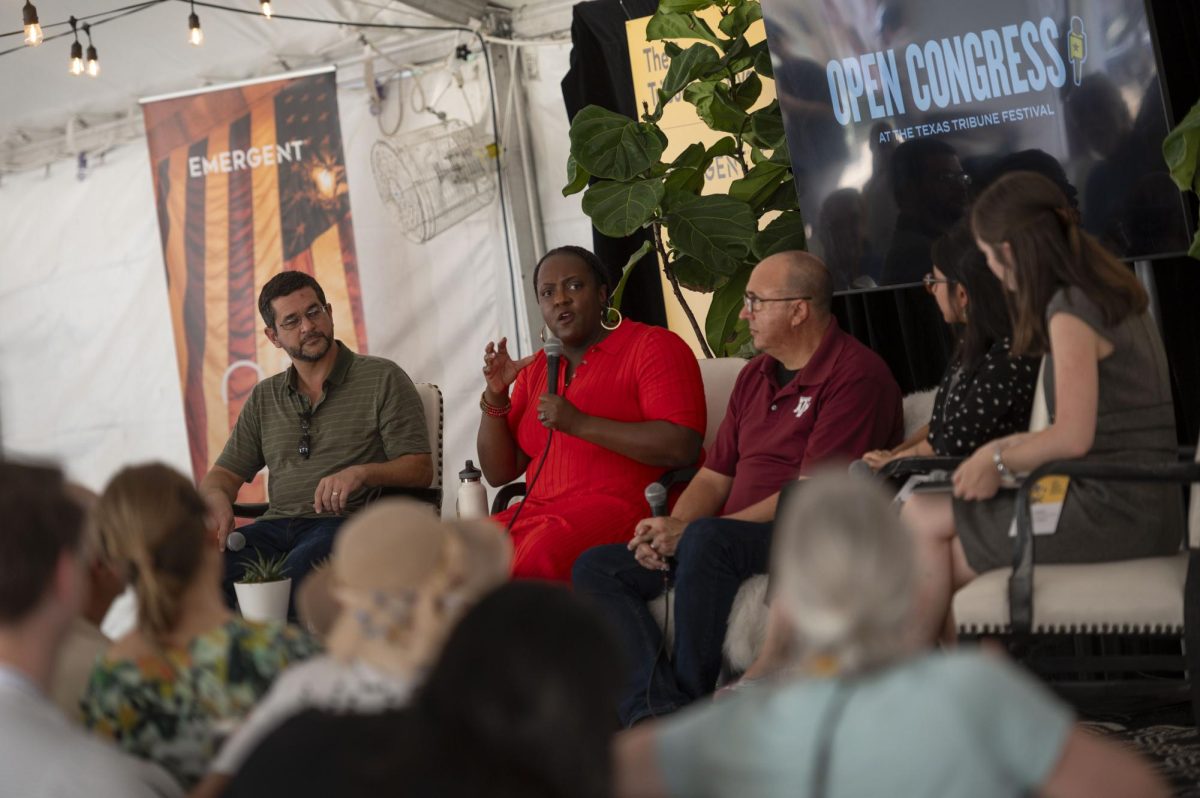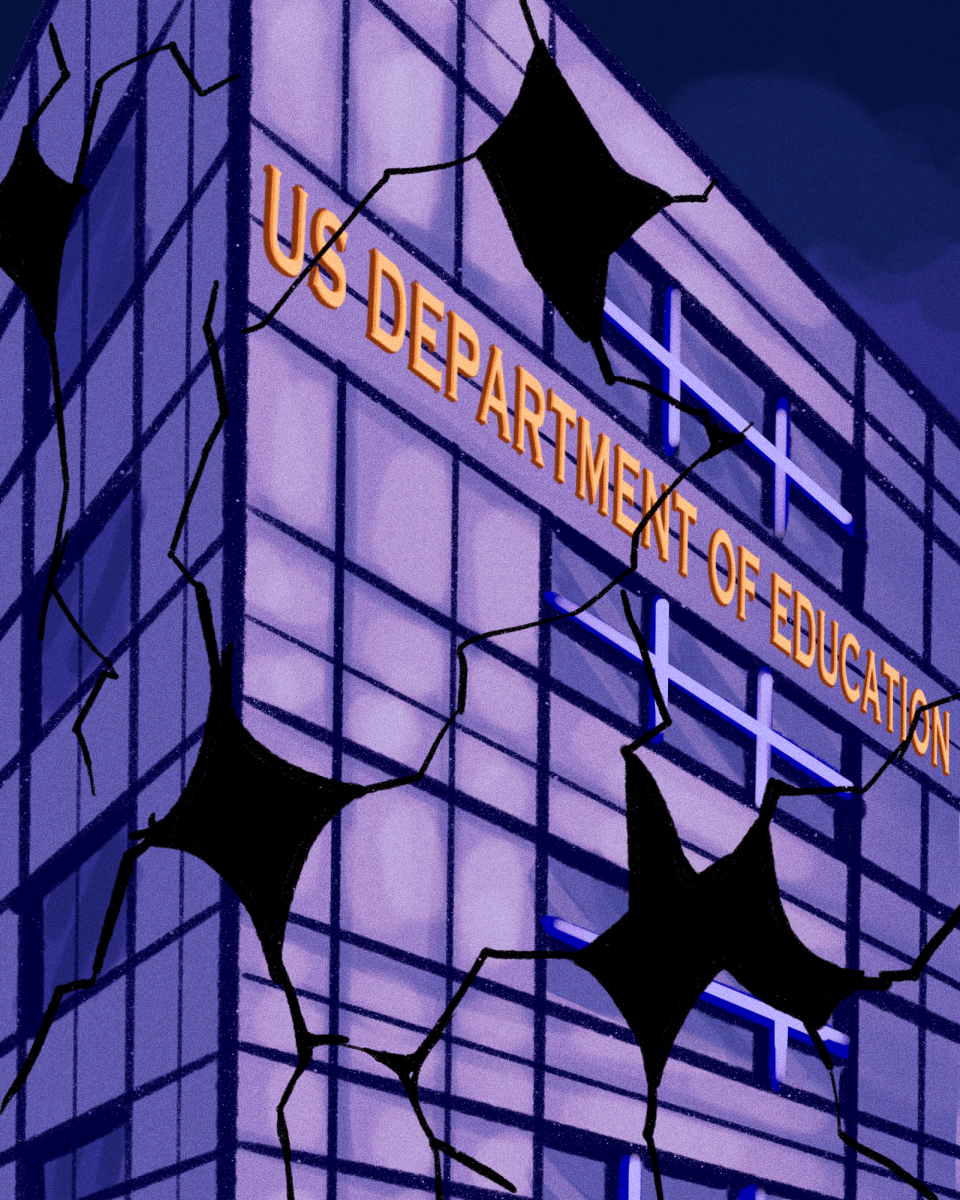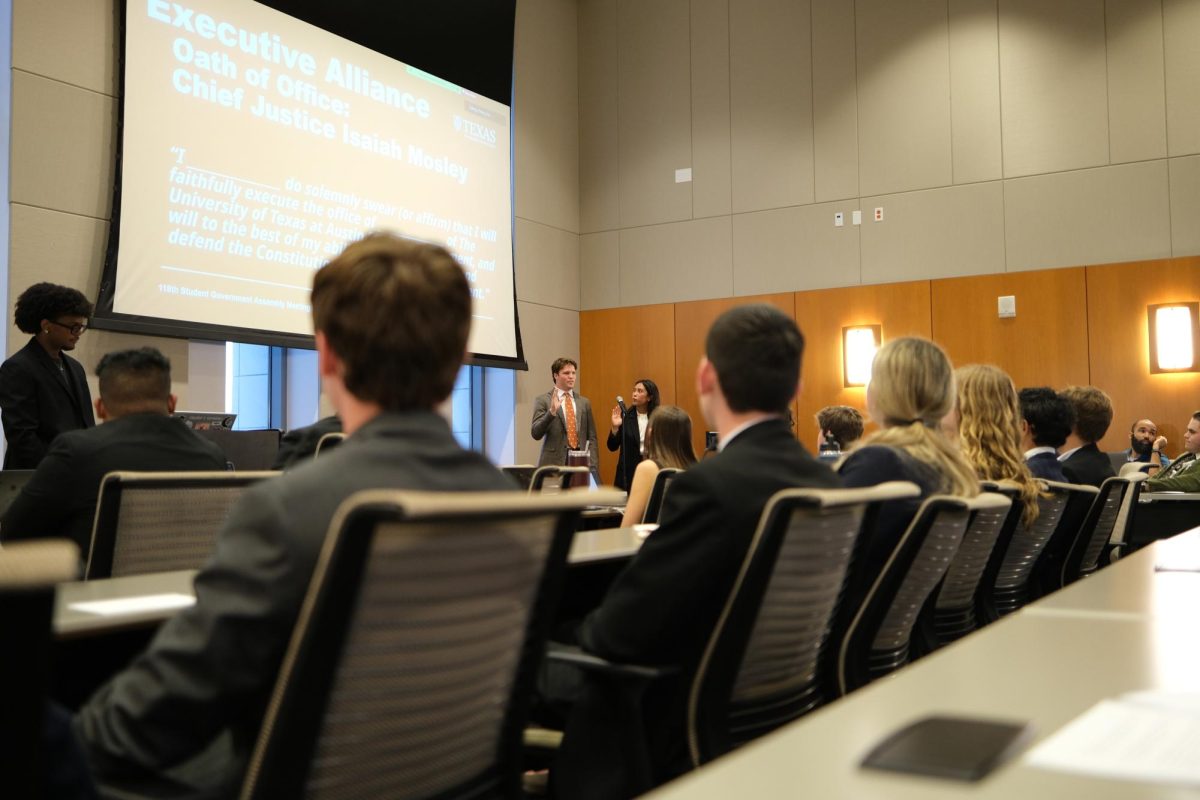Climate change is here to stay — and with it, a political rift — a group of panelists said Saturday at the 2023 Texas Tribune Festival.
Erin Douglas, a Texas Tribune climate reporter, moderated “The Heat is On” panel, which discussed the effects of climate change. The panelists included Andrew Dessler, director of the Texas Center for Climate Studies at Texas A&M, Heather McTeer Toney, executive director of Beyond Petrochemicals, Doug Lewin, host of the Texas Power Podcast and Naveena Sadasivam, a climate change and energy reporter for news site Grist.
The panelists focused on the reality of intense heat following a summer of record-breaking temperatures in Texas and around the world. Sadasivam said the good news is people already know how to best adapt to extreme heat. There are current policy initiatives in place for mitigating climate change consequences, such as the Inflation Reduction Act, but she said the challenge is implementing a holistic response at the different levels of government and the individual level.
“One of the things that needs to be a starting point for a lot of communities, cities (and) counties is to start by identifying which parts of the community are the hottest and which parts are disproportionately affected by it,” Sadasivam said.
Dessler said the global climate has warmed about two degrees Fahrenheit — on track for three — in the last 150 years. While that number seems small, he said it’s about 20% of the warming seen during the Ice Age. Once temperatures reach a degree or two more than expected, Dessler said, the world quickly looks very different than what people are used to.
“In the last couple of years after living through (Winter Storm) Uri and living through this summer, we as a society are not prepared for the temperature increases that are even slightly outside what we expect,” Dessler said. “It’s only a few degrees Celsius above the normal summer, and it was completely miserable.”
Lewin said people need to understand that fossil fuels are “doomed” and renewable energy will take over, meaning people should take advantage of the growing clean energy industry. Lewin said for every dollar spent globally on fossil fuels in 2023, $1.70 went toward clean energy. The amount of money invested in renewable energy is expected to have doubled by 2030, Lewin said.
Lewin said Texas will miss out on being a leader of clean energy if state leaders continue to focus on oil and gas, which funds many public institutions including the University of Texas through the Permanent University Fund.
“A lot of what we see our political leaders doing is digging in and trying to protect a slice of a declining industry while neglecting one of the biggest growing industries in the history of humanity,” Lewin said.
Toney said consumers should not be the only ones responsible for making environmentally-friendly decisions. Instead, they should hold politicians accountable for phasing out fossil fuels over time. Sadasivam also said urban planners must reimagine spaces to include less concrete and other heat-absorbing materials.
“As we’re thinking about our streets and we’re designing wastewater sewer systems (and) designing sidewalks, are we thinking about it in a way that is adapted to the climate that we know is going to happen?” Toney said. “That should go for every single aspect of our regular everyday life.”
Dessler acknowledged the costs associated with adapting to extreme heat, such as the cost of installing and running an air conditioner. People in power tend to weaponize those costs against people they look down on, such as the 70% of Texas prisoners who live without proper air conditioning, he said.
Toney added that costs are unavoidable, and the country will eventually see those costs appear in spheres like healthcare, education systems and unhoused populations if they go ignored.
Wrapping up the panel, Dessler said addressing climate change ultimately comes down to elections.
“As I told my students, the solution to all of these problems is not adaptation (or) mitigation, it’s political,” Dessler said. “Climate change is not a technical problem or scientific problem — it’s a political problem.”


















